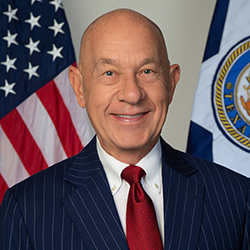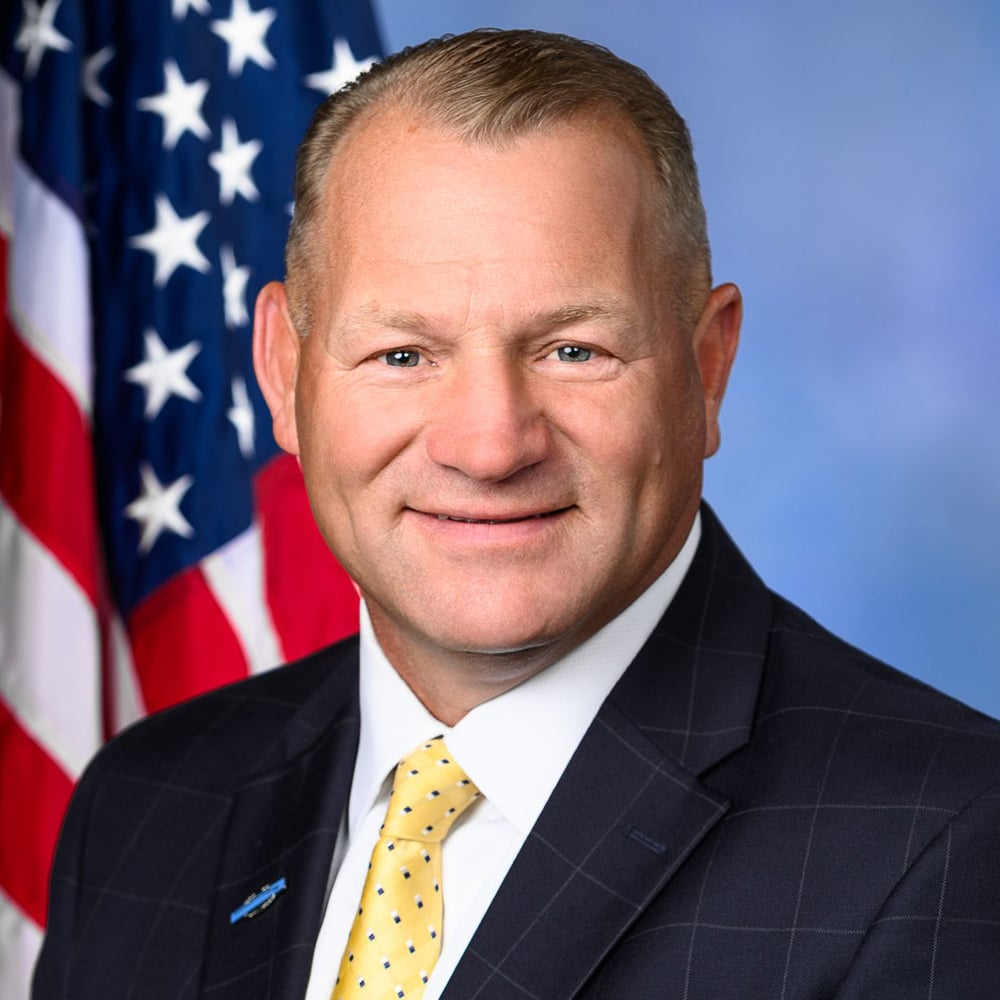Other outlets are on this now.

A state lawmaker and Houston teachers are calling for Houston Independent School District Superintendent Mike Miles to be investigated after a Spectrum News report revealed that millions in Texas public school tax dollars may have been funneled to a failing school in his Colorado charter school system.
These findings come less than two weeks after the state-appointed administrator announced a $450 million gap in funding at HISD — resulting in districtwide layoffs for the upcoming school year.
A Texas Education Agency spokesperson said agency officials are “aware of the report and are reviewing the matter.”
Miles did not respond to a request from The Texas Tribune for comment on Tuesday.
[…]
In a letter addressed to Morath, State Rep. Ana Hernandez, D-Houston, urged the state agency to conduct an investigation to clarify whether Texas public school tax dollars had been sent out of state.
“These alleged actions cast doubt on his ability to lead HISD and his commitment to providing the best education for our students,” Hernandez told The Tribune. “Texans deserve transparency, accountability, and responsiveness.”
Jackie Anderson, president of the Houston Federation of Teachers, accused Miles of using the tax dollars as his own “personal piggy bank,” echoing Hernandez’s request for an immediate investigation.
“The corruption of this deal stretches beyond just Mike Miles – the board of managers is also complicit in this shadowy scheme by failing to provide oversight and transparency,” she said. “Greg Abbott’s takeover of our schools has failed. Teachers, students and their families deserve better and in response we are demanding the immediate resignation of Mike Miles and the immediate exit of the TEA from HISD.”
See here for the background. I skipped the rehash of the basic story, so go to my earlier post or the Spectrum News report and bring yourself up to speed if you need to.
The Chron did get a response from Miles, and also did a Q&A summary/breakdown of the Spectrum piece.
Miles told the Chronicle Tuesday that while he hadn’t served as CEO of Third Future Schools in more than a year, the board and superintendent were conscious to ensure that Texas dollars stayed in Texas and Colorado dollars stayed in Colorado while he was leading the organization.
“Third Future Schools have been very careful, and they’ve always passed their audits easily,” Miles said Tuesday. “They do audits in Texas. They do audits in Colorado. … so they’re a good organization. They’re very careful about not commingling funds. They follow the law very carefully, and anything else is just to be dismissed out of hand.”
Here’s what you need to know about the charter school network’s financial practices:
[…]
Did either of the Third Future Schools’s other two campuses in Colorado report receiving any funds from Texas?
The Academy of Advanced Learning, one of Third Future Schools’ two campuses in Colorado, reported that it provided “professional services” for about $2.6 million to the Third Future Schools Texas network, and that Third Future Schools Texas owed then $2 million as of June 2022, according to the 2022 audit.
The school’s audit in the following year reported that Third Future Schools Texas owed them $2.4 million for “professional services” provided during the 2023 fiscal year. Coperni 3 also reported that Third Future Schools Texas owed them $78,000 for “professional services” and $1,145 for payments made on their behalf during the 2022 year, according to its audit.
Both campuses did not directly report receiving any funds from Third Future Schools Texas in audits before the 2022 fiscal year.
[…]
Is it illegal or uncommon for charter schools to pay fees to larger charter organizations or to pay outside entities for services?
Chapter 45 of the Texas Education Code states that public schools, including charter schools, can use state funds that are “not designated for a specific purpose” for any other purposes “necessary in the conduct of the public schools determined by the board of trustees.”
Toni Templeton, a senior research scientist at the University of Houston Education Research Center, said this language gives school boards broad flexibility to approve spending funds on nearly anything they determine is necessary for the benefit of the students, including purchasing services from other institutions and paying management or network fees.
“It’s not uncommon for (state) funds to go out of state,” said Templeton, the former director of data services for the Texas Charter Schools Association “I can understand how in the context of this particular conversation, people can be concerned, but no, it’s not an uncommon occurrence.”
Templeton said the local public school boards in Texas are responsible for approving contracts with organizations like Third Future Schools under what’s known as “1882 partnerships,” that designate how and where state funds can flow, which is then submitted to the TEA.
The TEA said in a statement Tuesday that it was aware of Spectrum’s report and was reviewing the matter.
So we have what Ms. Templeton says here, and we have what former State Rep. Paul Colbert said in the Spectrum News report, which is that it was “[his] understanding is that it is not legal in Texas for money from a school district in Texas to educate students in other districts in the state let alone in other states”. That’s less specific than what Ms. Templeton says, enough so that I can’t say his statement is in contradiction to hers. We also have a slightly different statement from Ms. Templeton as reported by Houston Public Media:
Third Future Schools operated in Odessa through a partnership with Ector County ISD, as permitted by Senate Bill 1882, which was adopted by the Texas Legislature in 2017. So a Texas school sending money to an out-of-state partner is not necessarily illegal, according to Toni Templeton, a senior research scientist for the Education Research Center at the University of Houston.
“I am not an attorney and I have not seen the specific transactions in question,” Templeton wrote in an email. “However, I have studied school finance for some time and to my knowledge, there are perfectly legal reasons a Texas ISD could send money to an 1882 partner out of state.”
That’s a more qualified statement, one that leaves room for “but in THIS case, THESE transactions are no bueno” or some such. We just don’t know enough yet.
On Wednesday morning, Miles provided a fuller response.
In a response to the report, Miles said it is either “badly misunderstanding,” or “intentionally misrepresents” Third Future Schools’ finances.
“I have an obligation to make very clear that during my tenure Third Future Schools was always a responsible steward of every public dollar received, all financial agreements and obligations were approved by local boards of directors, authorizers, and in our Texas schools, the school district with which TFS partnered,” Miles said, in part.
He said the schools paid administrative fees to the Third Futures Schools’ central office, which is located in Colorado.
“This is common practice for charters and other independent partnership schools and is not only allowed, but anticipated by Texas’ educational law,” Miles said.
Read Miles’ full response below:
“Friends, Partners, and Board Members:
“I had initially planned not to respond to an article circulating that badly misunderstands, or worse, intentionally misrepresents the financial practices of Third Future Schools. While I have not worked at the Third Future Schools network for more than a year, I find the piece irresponsibly inaccurate, and I cannot let this kind of misinformation go uncorrected.
“I have an obligation to make very clear that during my tenure Third Future Schools was always a responsible steward of every public dollar received, all financial agreements and obligations were approved by local boards of directors, authorizers, and in our Texas schools, the school district with which TFS partnered. Eight different districts in three states have trusted Third Future Schools with the education of their most underserved students and have overseen TFS’s overall financial health and propriety. Third Future Schools has a consistent track record of clean audits year over year, and I have no reason to believe that is any different now. These baseless claims cheapen the hard work and dedication of thousands of staff and students.
“The budgets of all Third Future Schools in Texas are attached to the management agreement with the local school district and are part of the approval process. Administrative fees are applied to all schools in all states in order for the central office to oversee and monitor the schools as well as provide network-wide supports (such as finance and human resources) from people and departments in the central office, which is located in Colorado. This is common practice for charters and other independent partnership schools and is not only allowed, but anticipated by Texas’ education law. Spectrum News either intentionally or, through gross incompetence, mischaracterized these common place financial arrangements between charter schools and the charter management organizations that support them.
“The Spectrum News reporter also worked to undermine the progress we made in Dallas ISD. It appears he is resurrecting old tactics that are not worth more time and attention. I do not intend to comment further on these spurious assertions. I am committed to staying focused on the tremendous challenge of improving Texas’ largest district.
“We have an obligation to finish the year strong for our students and staff, and that is where I will direct my time and attention. I thank you for your partnership and ask that you do the same as we look ahead to the 24-25 school year and beyond. We’ve accomplished a great deal and there is even more left to do.”
And the Chron gets some more statements.
Third Future Schools, in a statement Wednesday, said that “no Texas funds have ever been diverted to subsidize schools in Colorado,” and that administrative fees applied to all of the network’s 11 schools in Texas, Colorado and Louisiana are paid to a central office in Colorado, and then deposited back into a bank account in the school’s home state.
On Wednesday afternoon, Morath said that he had referred the complaint to the agency’s complaints team, which is a preliminary step toward a potential investigation.
He noted, however, that because Third Future operates as a non-profit that signs contracts with local school districts, rather than a charter that receives state funds, the review would focus on Midland, Ector County, and Austin ISDs, the districts where Third Future schools allegedly sent funds to Colorado.
“School districts have autonomy to engage with vendors to provide educational services,” Morath wrote. “As a vendor of the school district, Third Future Schools would have latitude afforded under its contract with each district to spend its funds in service of the contract.”
Miles said Wednesday that he would welcome a TEA investigation into the matter.
And some reactions.
State Rep. Jarvis Johnson wrote to Miles on May 10 to demand his immediate removal after “widespread surprise firings of decorated and high-performing educators.” Johnson called for Miles to submit his resignation and immediately reinstate all terminated principals and teachers.
Molly Cook, who is scheduled for a Democratic primary runoff against Johnson on May 28 for Mayor John Whitmire’s former Senate seat, also called for Miles’ immediate resignation and “the immediate exit of the TEA (Texas Education Agency) from HISD” on Facebook. She also called for a third-party investigation alongside the union Houston Federation of Teachers after Spectrum News reported that Miles’ former charter network, Third Future Schools, illegally used money from its Texas campuses to subsidize its Colorado schools.
“Witnessing this level of incompetence and weaponization of power you are displaying is truly all my greatest fears about the takeover coming to fruition,” Johnson wrote to Miles.
State Rep. Christina Morales, whose district stretches from the northwest to the southeast across Houston, and State Rep. Penny Morales Shaw focused on the potential impact of the shakeup on bilingual and special education.
Noting she has repeatedly requested data on HISD, Morales wrote to the Texas Education Agency Tuesday requesting the number of students and teachers in special education and emergent bilingual programs for the past five years.
“My office has fielded many calls and complaints from parents who feel their children are not being treated appropriately or provided the services to which they are legally entitled.”
On Saturday, State Rep. Penny Morales Shaw said the job loss and resignations were “unconscionable” while acknowledging that Texas has at-will employment.
“HISD has a legal obligation to provide certain services to students with special needs or emerging bilingual students, and they are just blatantly violating those laws and those rights that people have,” Morales Shaw said. “So we are crossing over from things that are just immoral and unconscionable to things that are now illegal and that are against— it violates state law. And we’re going to look into that.”
Calling the takeover a “Republican War on Public Education,” Rep. Gene Wu called for a reevaluation of the layoffs and a plan so that no HISD employee loses their pension or job unnecessarily in a Monday press release.
“It’s unconscionable that we find our school districts in such dire financial straits when solutions like adequately increasing the per-student funding and providing meaningful raises to our teachers are within reach,” Wu said in the Monday statement.
Good to see some people place a decent portion of the blame for HISD’s financial situation on Greg Abbott, which is something Mike Miles has never done. I’m not even sure he realizes that he could have bought a modicum of good will from the people now calling for his head if he had done that.
I don’t know yet what to make of everything we’ve seen so far. I’m not taking Mike Miles’ word for anything, but I’m also not sure this isn’t a situation where the real problem is what is allowed. I have no expertise in this, I’m just trying to evaluate what’s in front of me. There’s also the whole lack-of-transparency thing from Miles, coupled with the lack of any oversight on him, and that’s without taking the issues with special education (also one of the things Miles was tasked with fixing) and bilingual education into account. I’m going to say again what I said yesterday, which is that I would like to see more reporting on the question of what happened with this money, and what is and is not allowed. If there’s anything even a little bit shady to be found, then Miles’ ass should be out the door ASAP. I mean, I want him out for other reasons, but as far as this one goes I don’t know enough yet to say that it qualifies. Let’s find out more and see where it takes us.



















